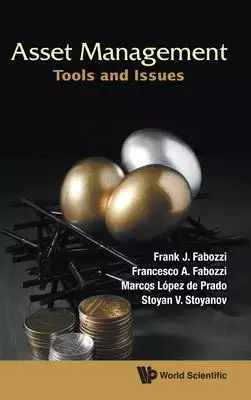asset securitization的問題,透過圖書和論文來找解法和答案更準確安心。 我們查出實價登入價格、格局平面圖和買賣資訊
asset securitization的問題,我們搜遍了碩博士論文和台灣出版的書籍,推薦Gauthier, Laurent寫的 Securitization Economics: Deconstructing the Economic Foundations of Asset Securitization 和Fabozzi, Frank J.,Fabozzi, Francesco A.,Stoyanov, Stoyan V.的 Asset Management: Tools and Issues都 可以從中找到所需的評價。
這兩本書分別來自 和所出版 。
健行科技大學 國際企業經營系碩士班 彭開琼所指導 曾婉庭的 退休基金研究-以資產證券化型基金為例 (2021),提出asset securitization關鍵因素是什麼,來自於退休基金、投資規劃、報酬率、資產證券化。
而第二篇論文中央警察大學 國境警察學系碩士班 高佩珊所指導 林昕葦的 川普政府對中國安全戰略分析 (2021),提出因為有 國家安全戰略、川普政府、美中政策、安全化、圍堵的重點而找出了 asset securitization的解答。
Securitization Economics: Deconstructing the Economic Foundations of Asset Securitization

為了解決asset securitization 的問題,作者Gauthier, Laurent 這樣論述:
Laurent Gauthier works as a consultant advising institutional investors on securitized products research and modeling, teaches as an adjunct at Toulouse Business School (France), and has been a Visiting Professor in economics at the University of Konstanz (Germany). He has spent close to 25 years fo
cusing on securitization, and ran securitized products research and trading strategy at Morgan Stanley and at other investment banks. He graduated from Edhec Business School (France) with a major in corporate finance, and holds a PhD in mathematics from Sorbonne University (France). He has published
several articles and book chapters in mathematical finance and on the analysis of securitized products.
退休基金研究-以資產證券化型基金為例
為了解決asset securitization 的問題,作者曾婉庭 這樣論述:
本文根據中華民國證券投資信託暨顧問商業同業公會的績效評比分類標準選取不動產證券化型基金為退休基金標的,在基金三個月、六個月、一年、兩年、三年、五年、十年的七個區間投資與其基金獲利進行各區間之報酬率排序比較,由高而低排列之累計報酬率排序類中讓投資者參考選取適宜的退休投資與研究標的。 研究結果發現,長期投資不動產證券化型基金,10年時累積報酬率可達 28.19%~ 144.69%,可作為退休基金的良好投資標的。另一方面,台新北美收益資產證券化(A),其三年期累積報酬率超過 50%,十年期累積報酬率超過140%,為推薦的不動產證券化型基金。關鍵詞:退休基金、投資規劃、報酬率、資產證券
化
Asset Management: Tools and Issues

為了解決asset securitization 的問題,作者Fabozzi, Frank J.,Fabozzi, Francesco A.,Stoyanov, Stoyan V. 這樣論述:
Long gone are the times when investors could make decisions based on intuition. Modern asset management draws on a wide-range of fields beyond financial theory: economics, financial accounting, econometrics/statistics, management science, operations research (optimization and Monte Carlo simulati
on), and more recently, data science (Big Data, machine learning, and artificial intelligence). The challenge in writing an institutional asset management book is that when tools from these different fields are applied in an investment strategy or an analytical framework for valuing securities, it i
s assumed that the reader is familiar with the fundamentals of these fields. Attempting to explain strategies and analytical concepts while also providing a primer on the tools from other fields is not the most effective way of describing the asset management process. Moreover, while an increasing n
umber of investment models have been proposed in the asset management literature, there are challenges and issues in implementing these models. This book provides a description of the tools used in asset management as well as a more in-depth explanation of specialized topics and issues covered in th
e companion book, Fundamentals of Institutional Asset Management. The topics covered include the asset management business and its challenges, the basics of financial accounting, securitization technology, analytical tools (financial econometrics, Monte Carlo simulation, optimization models, and mac
hine learning), alternative risk measures for asset allocation, securities finance, implementing quantitative research, quantitative equity strategies, transaction costs, multifactor models applied to equity and bond portfolio management, and backtesting methodologies. This pedagogic approach expose
s the reader to the set of interdisciplinary tools that modern asset managers require in order to extract profits from data and processes.
川普政府對中國安全戰略分析
為了解決asset securitization 的問題,作者林昕葦 這樣論述:
習近平上台之後,在他的強人政治與外交政策下,中國的綜合國力正顯著上升,中國在國際舞台的自信心逐漸來到了新的高度,也漸漸與美國開始產生了一些分歧。但在中國壯大的同時,美國認為與中國的交往出現越來越多不平等現象,與此同時,在川普政府下的美國優先理念之下,具體的施政及行動皆充滿濃厚的民族主義。 本研究主題為川普總統任內的美國對中國之國家安全戰略,利用安全化理論所重視的批判性話語分析,從三個面向:文本、話語實踐以及戰略實踐分析川普政府所公布的官方戰略、對外之新聞稿以及公開講談,企圖找出川普政府如何建構對中政治、經濟以及軍事政策,進而討論美國後續所採取之對中政策。最後,再以中國對美政策之回應
為主,評估美對中政策安全化結果之成效。 本研究認為,川普政府擅長使用並置(juxtaposition)手法描述中國所帶來的威脅,因此在其川普政府的操控下,許多議題被安全化,成功影響美國國民對中之負面觀感。最後,川普政府雖強調美國優先,但在各個政策執行上並不代表美國孤立,美國仍重視盟友國支持與配合,並期望能藉著反中情緒拉攏其他盟友國。